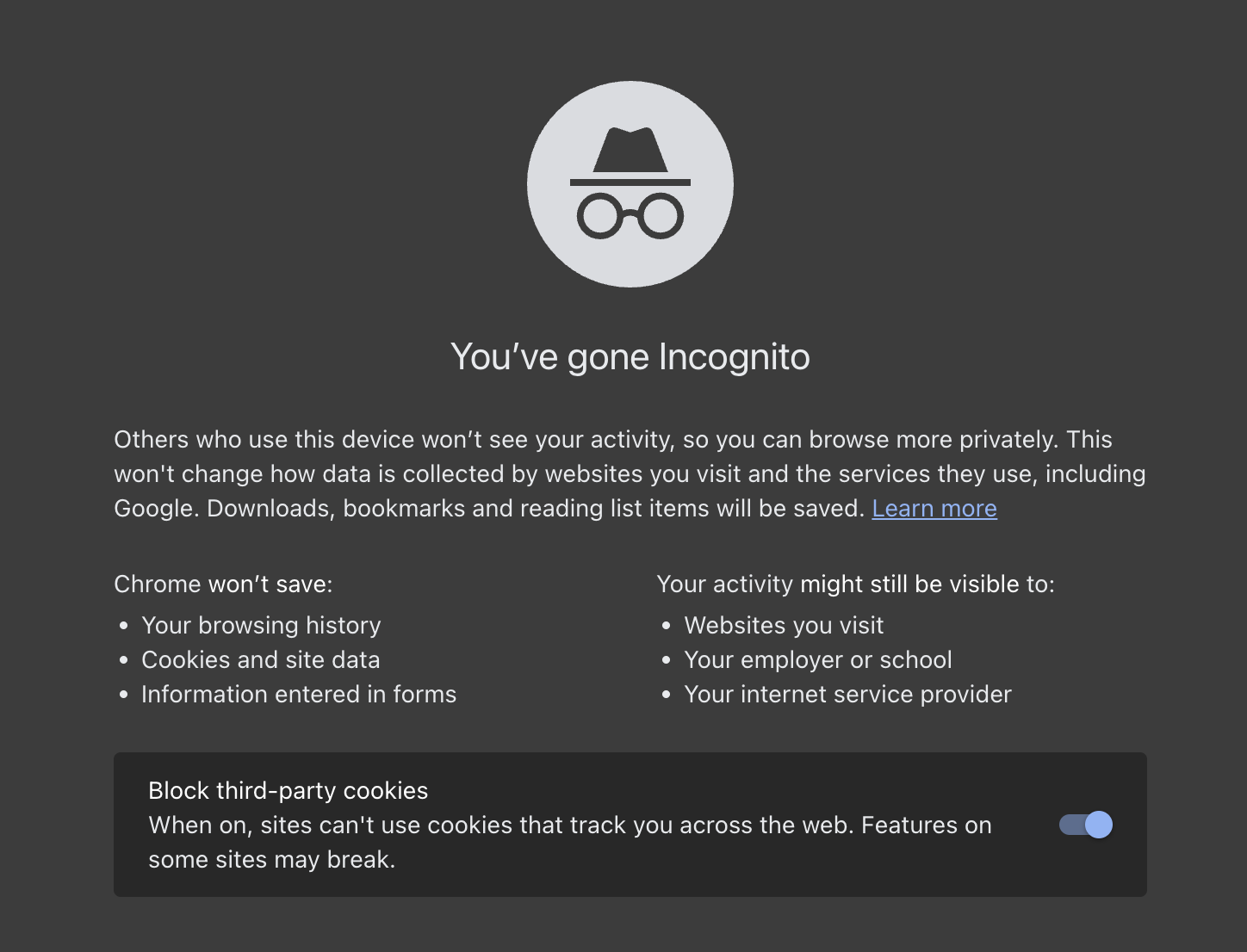Google may have been storing your incognito browsing data and now they've agreed to delete it
In case you thought that was totally private

Sign up for breaking news, reviews, opinion, top tech deals, and more.
You are now subscribed
Your newsletter sign-up was successful
Google's apparently been storing your Chrome incognito browsing data, and now they've finally agreed to delete it.
In a court document filed Monday (April 1) and spotted by BGR, Google has agreed to settle a nearly four-year-old class-action suit that challenged Google's private browsing (a.k.a. "Incognito Mode) data collection policies.
The original lawsuit claimed, "Google tracks and collects consumer browsing history and other web activity data no matter what safeguards consumers undertake to protect their data privacy...even when Google users launch a web browser with 'private browsing mode' activated...Google nevertheless tracks the users’ browsing data and other identifying information."
Google didn't entirely deny the claims, stating in 2020 that while incognito browsing mode data isn't saved locally, "websites might be able to collect information about your browsing activity during your session."
Now, the search giant has, in principle at least, agreed to several adjustments in its messaging, data collection, and storage practices. However, if you thought this class action lawsuit might result in a small check arriving on your doorstep, you may be disappointed. The filing states that there will be "no release of monetary claims," though individuals retain the right to sue Google for damages.
Among the changes Google will agree to when it appears before a judge on July 30:
- Deletion or remediation of all collected data
- Rewrite its incognito browser disclosures
- Google must add, for the next five years at least, the ability in incognito mode to block third-party cookies by default.
- Google has to delete private-browsing detection bits.

While this is probably good news and a big deal (Chrome currently has over 65% browser market share), the fact that incognito browsing never meant what you thought it did might be unnerving for some users.
Sign up for breaking news, reviews, opinion, top tech deals, and more.
Now, no one is judging what you browse in incognito mode but it's probably good guidance to stop assuming that whatever you see while browsing in that mode is not being detected or "seen" in some way by others.
It's not that random people or Google employees are looking at your browser history, Instead, Google's been doing what it always does, acting as a data middle-man to enable ad-targeting and some continuity in your browsing experience either by Google or through partners who use cookies to ensure that what you see on subsequent pages reflects what you were looking at on the page before.
While the filing notes that Google has already undertaken some of these changes, it's not clear if the messaging on the incognito splash pages has changed.
At the top, it reminds you that others using the same device won't see your browsing history and it notes that Chrome doesn't in this mode store browser history, cookies, and form information. It also notes, however, that your activity might be visible to the sites you visit, someone in control of your account (a school or employer), and your ISP.
It's not clear if the changes Google's set to make will impact any of that.
As for how Google feels about all this, the settlement notes that "Google supports final approval of the settlement, but disagrees with the legal and factual characterizations contained in the Motion."
You might also like
- Microsoft Edge is better than Google Chrome, but I can't bring myself ...
- I'm sick of Chrome eating all my RAM – it's time for me to ditch it for ...
- Chrome's new Declutter tool may soon help manage your 100 plus ...
- My New Year's resolution is to finally ditch Chrome, Windows and ...
- Google Chrome just made it ridiculously easy to capture frames from ...

A 38-year industry veteran and award-winning journalist, Lance has covered technology since PCs were the size of suitcases and “on line” meant “waiting.” He’s a former Lifewire Editor-in-Chief, Mashable Editor-in-Chief, and, before that, Editor in Chief of PCMag.com and Senior Vice President of Content for Ziff Davis, Inc. He also wrote a popular, weekly tech column for Medium called The Upgrade.
Lance Ulanoff makes frequent appearances on national, international, and local news programs including Live with Kelly and Mark, the Today Show, Good Morning America, CNBC, CNN, and the BBC.